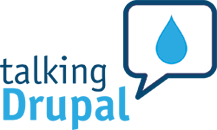A program or application is free software when it is intentionally licensed with our freedom in mind. Specifically, four freedoms (numbered using the zero-based numbering in programming languages):
- Freedom 0 - The freedom to run the program as you wish, for any purpose.
- Freedom 1 - The freedom to study how the program works, and change it so it does your computing as you wish.
- Freedom 2 - The freedom to redistribute copies so you can help others.
- Freedom 3 - The freedom to distribute copies of your modified versions to others.
From Linux to Firefox to Drupal, free software is a tremendous force in our world. By building free software, we help building a software commons we can all trust and benefit from.
Why Free?
A Note On Other Words: Libre Software, Open Source
There are similar terms used to describe similar software. Libre software is a synonym for free software. By using the word libre, we remove the ambiguity inherent in free, which can mean free as in no money or free as in liberty. We appreciate this term and use it interchangeably with free software.
Open source is very similar to free software. It emerged, like libre software, as a way to remove ambiguity. However, in doing so it loses the ethical and political power that comes with free/libre software. So while we respect and use the term open source, we prefer free software because of it emphasizes the value of freedom.
Further Reading
The following are excellent pieces for further information on the meaning of free software and some of the differences and debates between the various terms.
- Free Software Wikipedia article
- How I coined the term 'open source' by Christine Peterson
- Why Open Source misses the point of Free Software by Richard Stallman
- When Free Software Isn't (Practically) Superior by Benjamin Mako Hill

